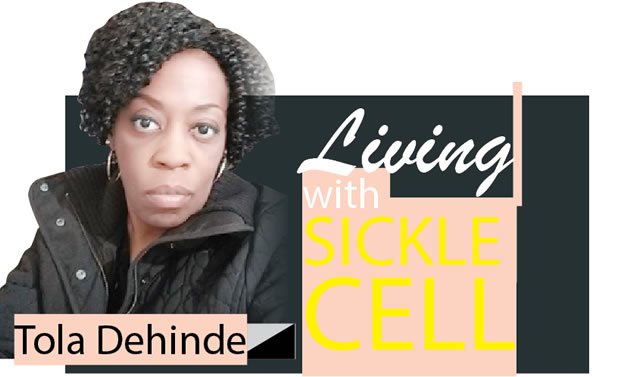
Olufunmilola Anjorin approached me, wanting to write about the issues of insecurity that affect anyone living with sickle cell. I decided to research online to get the right definition of the word ‘insecurity.’ It is being deficient in assurance; for example, being filled by fear and anxiety; it is always feeling insecure in a group of strangers. It is not being highly stable or well-adjusted; it is not being confident or sure; it is having an uncertain feeling.
One reason why anyone living with sickle cell is insecure is because this invisible illness affects one’s physical, mental, and social outlook. It is a liability living with sickle cell. From being in education, to getting a job is a nightmare due to the unpredictable nature of the disease. Going on holidays can cause insecurities, where one is worried about being sick, before, during or after the flight. It is interesting how one lives with pain all the time, that when people ask, ‘how are you?,’ one automatically says okay. This is because one has lived with pain, all or most of one’s life. One does not feel secure enough to be truthful and say, ‘you know what, I am in pain.’
Olufunmilola who also lives with sickle cell has the following to say, from her perspective. “I have lived with this genetic disorder for three decades now. All the while, I felt that it was justifiable to add insecurities to the list. I convinced myself for years that it was typical – but now I know it’s not.
“Sickle cell is a genetic disorder with some constant vaso-occlusive crises that a person living without would never understand, no matter how much a carrier explains. I cannot deny that there is a stigma associated with being a carrier of the disorder, especially when one does not meet up to expectations. It is not okay for people to label one, but there is little to nothing one can do about it. Friends might look down on one, and relations might shut one out. But that will not amount to much if one refuses to let them define one. It is not okay to receive the labelled and build a bag full of insecurities with it.
“As for me, the sickle cell diagnosis was the beginning of my insecurities, and every “bad” incident I would naturally shrug off added to my insecurities. I couldn’t trust anymore because I felt everyone who came around me wanted to condemn me. I found it difficult to believe that people who were not sickle cell warriors could genuinely care. I would find an excuse to miss most parties, especially ones that included girls’ talk. Because I felt inferior, I did not want anyone talking about anything that could upset me. I genuinely thought my absence was best.
“I met a friend who made me see that I was the one who made myself a lone ranger, justifying it with sickle cell. I was the one destroying my relationships because of my insecurities. I was the one who judged myself first, making it easy for insincere people to hurt me. After having deep conversations with this friend, my mindset changed. Yes, sickle cell is a genetic disorder I cannot change or control, but I can change my response to it and how it affects my relationships.
“You can be beautiful and amazing to relate with, even as a sickle cell warrior. Sickle cell is a medical disorder and not a definer of life. Do not empower it any more than you should!”
As someone living with sickle cell, I, Tola Dehinde, have found ways to help myself so I don’t fall into the mindset of being insecure. In spite of sickle cell, I affirm what I am doing well, as it is easy to get into a rut, thinking of how being sick did not make me achieve or do something. I try as much as I can to take care of my needs and by that, I mean, looking after myself in every sense of the word. I look after my spirit, soul and body. I enjoy eating out and will do so as much as I can. I will speak words of affirmation to myself or read books, or I will meditate on the Word of God. If my mind takes me back to a time where I did not perform well, in something because I was unwell, I will try not to be hard on myself, as the last thing I want would be to have a crisis. I try and make sure that I have other friends outside of the sickle cell community, so that I can have diverse conversations with people and not talk about sickle cell all the time. I try to be mindful about situations and their triggers. For example, travelling might result in my having a crisis. My way to preempt this from happening is by taking tablets before flying. Another thing I do is instead of being critical about my non-achievements, I tell myself some things I like about myself. Another thing is when I am well is to do the things that make me happy, whatever they might be, go shopping, or watch a film etc.
If you would like to get in touch with Olufunmilola about this write-up, her Instagram handle is: victornot_victim.
If you would like to get in touch with me about Sickle cell, do so, via email: [email protected] And do checkout my blog: https://www.dailylivingwithsicklecell.com/ My book on Sickle Cell – How To Live With Sickle Cell and my other books are available for purchase on www.amazon.com.









